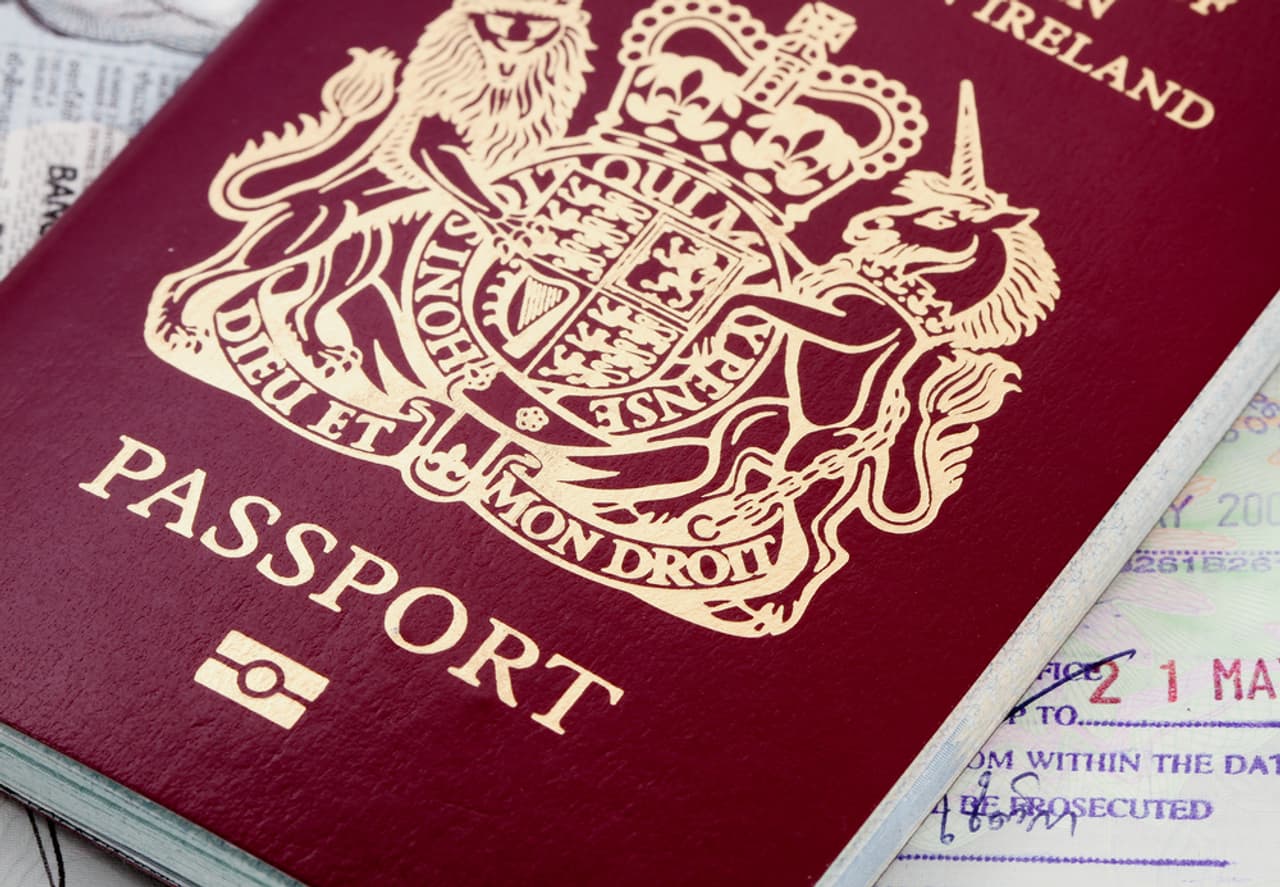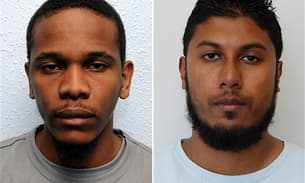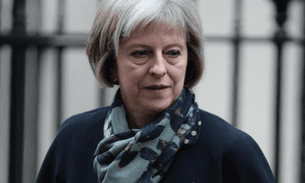
No place like home: Examining the UK’s increasing use of ‘medieval exile’
At first glance, the letters are unremarkable: a few typed paragraphs on a single A4 sheet. They’re not even on headed notepaper. But the curly signature at the bottom belongs to one of Britain’s most powerful people: Theresa May, the Home Secretary. And the letter informs the recipient that she, May, has personally decided to terminate their British citizenship.
Since the Coalition entered office in May 2010, at least 20 people have received such letters, as the Home Secretary has seized on a little-known power to deal with those she feels pose a risk to the UK. Her orders take effect immediately, so the letters’ recipients have lost their citizenship even before they’ve opened the envelope.
To issue a deprivation of citizenship order, May must believe someone’s presence in the UK is ‘not conducive to the public good’ – usually on suspicion of links to terrorism or extremism. The decision is entirely hers: she requires no judicial approval or any other kind of administrative process in advance.
– Dr Helena Wray
In nearly every known case, the individual was abroad when the letter was sent. With their citizenship removed they were effectively stranded overseas, unable to return to be present at legal appeals – the only means of fighting their case. Human rights lawyer Gareth Peirce compares the power to ‘medieval exile’.
Where the cases are on national security grounds, appeals are heard in the Special Immigration Appeals Commission (Siac), a tribunal that can hear secret evidence. The appellant often knows only the vaguest outlines of the allegations against them.
Now May is believed to be planning a dramatic expansion of her powers to revoke citizenship by rewriting the law so that she can issue orders even where it will make people stateless, which is currently illegal under the British Nationality Act, and even though Britain is a signatory to international treaties aimed at reducing statelessness.
This would put Britain in uncomfortable company, alongside nations such as Bahrain, which has been criticised by the UN’s High Commissioner for Human Rights for making dissidents stateless. In the US, the government is banned from removing the nationality of its citizens since a Supreme Court ruling in 1967, when judges ruled the US constitution did not allow for ‘fleeting citizenship, good at the moment it is acquired but subject to destruction by the Government at any time.’
By contrast, ‘[T]he current [British] government seems to see being a citizen as just another provisional status that can be taken away if you’re not well-behaved,’ says Dr Helena Wray, an immigration law specialist at Middlesex University.
Revoking nationality is one of the most significant actions the Home Secretary can take against an individual. A deprivation of citizenship order removes all the protections and rights that go with being a British national, cancelling any passports or travel documents and removing the right to live in the UK, or to get consular help when overseas.
The effects can be far-reaching and brutal. In 2012 Mahdi Hashi, a young man from Camden, lost his British citizenship while he was in his native Somalia. He was then secretly detained in Djibouti, east Africa before the US carried out an extraordinary rendition on him, whisking him to a New York jail.
Hashi has spent the past year in solitary confinement, awaiting trial on terrorism offences. When he first went missing his family wrote to the Foreign Office asking for help in finding him. They were told Hashi is ‘no longer a British national, and as such has no right to Consular assistance’.
Two other young Londoners, Bilal al Berjawi and Mohamed Sakr, suffered a darker fate, losing their citizenship in 2010 and dying in two US drone strikes a month apart in Somalia last year. Sakr’s father, Gamal Sakr, told the Bureau he believes the removal of his son’s citizenship made him vulnerable. ‘I’ll never stop blaming the British government for what they did to my son,’ he said.
Related story – Former British citizens killed by drone strikes after passports revoked
And in a case currently before Siac, the Home Secretary deliberately waited until a Sudanese-born man referred to in court as L1 had left the country before revoking his nationality. In autumn 2009, plans to remove his citizenship that were already ‘at an advanced stage’ were shelved by the Labour government when L1 returned to the UK from overseas. He remained at liberty in the UK for the next 10 months. The following summer, he left the country again, and the Coalition government acted swiftly, revoking his nationality days after he left the country. He claims this is an abuse of the Home Secretary’s powers.
Under the current law, the only block on the Home Secretary using these powers is that she cannot use the orders if they will make an individual stateless. In practice, this means the orders can only be used against citizens with dual nationality, as they will still hold the nationality of another country.
But now, in leaks to the media and parliamentary briefings, the Home Office has signalled its intention to remove this barrier. One suggestion is that May plans to amend the Immigration Bill so she can make people stateless if they have done something ‘seriously prejudicial to the vital interests’ of the country. The law would apply only to those who are naturalised as UK citizens, rather than those who are born British, the reports and other sources suggest.
Bella Sankey, policy director of Liberty, said: ‘Stripping your own people of their citizenship is a hallmark of oppressive and desperate regimes. Rendering them stateless is lawless and shortsighted. Where suspicions exist public safety is best served by criminal investigations, not trampling on due process and trashing our reputation on the global stage.’
The right to a nationality is enshrined in Article 15 of the UN’s Universal Declaration of Human Rights.
Dr Matthew Gibney, of the Refugee Studies Centre at Oxford University, says: ‘For the individual, to be stateless is a recipe for exclusion, precariousness and dispossession… being stateless often means that an individual has no political rights, cannot own property, work lawfully, or access state provided education; statelessness usually makes an individual inescapably vulnerable to deportation because the person lacks any right lawfully to reside in any of the world’s states.’
Many of those whose citizenship has been removed by the British Home Secretary have claimed the actions have left them stateless. The Bureau has identified nine cases where people have argued this in court, and Mohamed Sakr’s parents say that although they come from Egypt, their son did not have an Egyptian passport.
In October, an Iraqi-born man named Hilal al-Jedda won a six-year battle to regain his British citizenship when the Supreme Court ruled that he had illegally been made stateless.
Al-Jedda had been detained by British forces in Iraq for three years on suspicion of planning bomb attacks, but was held in military custody and so was never charged. He has claimed he was physically abused while in custody.
His Supreme Court victory is one of two times anyone is known to have successfully challenged removal of citizenship on national security grounds. But rather than return al-Jedda’s passport, May signed a new order revoking his nationality, again preventing him from returning to the UK.
Related story – Home Secretary strips man of UK citizenship – for the second time
A Vietnam-born former graphic designer, known only as B2, will take his case to the Supreme Court next year to argue that he, too, is stateless following the loss of his British nationality.
Britain is one of 54 signatories to the 1961 UN Convention on the Reduction of Statelessness, which prohibits making people stateless. The British government reserved the right to make an exception if someone has done something ‘seriously prejudicial to the vital interests of the state’ – a tougher test than the one the Home Secretary currently uses to remove citizenship.
Mark Manly, legal coordinator for statelessness at the UNHCR, says: ‘The key words here are ‘seriously’ and ‘vital’. So it’s not just any kind of crime that we’re talking about, but really serious crimes against the core interests of the State. Offences like treason and espionage were what the drafters of the Convention had in mind. If you look at the language of the convention, it’s about conduct – action already taken by the individual.’
When the Labour government first rewrote nationality laws in 2002-03 so it could remove the nationality of terrorism suspects, the threshold the Home Secretary had to meet was the ‘seriously prejudicial’ test – which is more demanding than the current, ‘not conducive to the public good’ test. Then-Home Office minister Angela Eagle told MPs, ‘I want to put on record that we do not want to go round rendering large numbers of people stateless.’
Gibney says: ‘[T]he government assured parliament that there was absolutely nothing sinister about these new powers… Any new powers, Ministers argued, would be used only in exceptional circumstances and deprivation decisions would be subject to an automatic right of appeal, as well as a guarantee that no individual would lose their citizenship if it made them stateless.’
The law was rewritten in 2005-06 so the Home Secretary could act if it was believed that an individual’s presence in the UK is ‘not conducive to the public good’ – meaning she can act based on what someone might do, rather than something they have done. Debating the change to the law in 2005, then Conservative MP Humfrey Malins called this a ‘watered-down test’, asking, ‘Is deprivation of citizenship to be used instead of a prosecution?’
The Labour government’s promises have proven ‘empty’, Gibney says. ‘[M]ore than two dozen people have lost their citizenship, most since the standard required for deprivation was watered down in 2006.’
He continues: ‘The right to an appeal has been undermined by the fact that many people are stripped of citizenship when they are overseas and thus unable to return to the country; and the Home Secretary has now proposed lifting the bar on stripping citizenship when it makes an individual stateless.
‘The gap between what was promised and what has actually transpired could hardly be more gaping.’
Although the citizenship-stripping cases identified by the Bureau almost all relate to national security, the Home Secretary has used the ‘conducive to the public good’ test elsewhere for far less extreme cases. In June, May decided that Trenton Oldfield, the Australian citizen who disrupted the 2012 Boat Race, should be denied a new visa as his presence in the country was not conducive to the public good – a decision his MP described as ‘disproportionate’. The decision was overturned this month in court.
Born this way
When questioned about its citizenship-stripping programme, the Home Office often responds with a boilerplate phrase: ‘Citizenship is a privilege, not a right.’ But at least five of those who have lost their nationality were born in the UK and were entitled to citizenship from birth.
Mohamed Sakr was born in London to parents who moved there from Egypt 35 years ago. Any entitlement to Egyptian nationality was nothing more than an accident of birth. ‘No member of my family ever had an Egyptian passport,’ Mr Sakr told the Bureau. ‘For the kids it never crossed my mind that they would have anything other than their British passports. I know they are British, born British, they are British, and carried their British passports.’
Related story – Theresa May overruled security services in citizenship-stripping case
The other British-born men who have claimed to have been made stateless all belong to the same family: a Newcastle-born man referred to in court papers as S1, and his three adult sons, all born in London. S1’s parents moved to the UK from Pakistan in 1958; he was raised in Britain and, after marrying a Pakistani woman in 1984, raised his own family in the UK too. In 2009 the family – including two younger children – moved to Pakistan. Two years later, Theresa May revoked the British nationality of four members of the family.
S1 argued that he had been repeatedly refused a Pakistani passport as the Pakistani authorities said he was not a citizen. He eventually obtained one by lying about his birthplace.
But Siac ruled that even if his Pakistani papers were obtained falsely, they hadn’t prevented him from entering and living in Pakistan, so he is effectively a Pakistani national. He and his family remain in Pakistan as their appeals continue.
Even where people have naturalised as British citizens, rather than being born British, they often came to the UK and gained citizenship at a young age, with many arriving as refugee children.
Bilal al Berjawi, a childhood friend of Mohamed Sakr, came to London from Lebanon with his parents as a baby. Mahdi Hashi, now awaiting trial in New York, moved to Britain with his parents fleeing war in their native Somalia and became a citizen at the age of nine. And B2, the former graphic designer, arrived in the UK aged seven.
These men grew up in the UK. They went to British schools. Their connections to the UK are deep-rooted. Under the proposed changes, others in their situation would be vulnerable to losing their nationality even if it made them stateless, leaving them in legal limbo with no other government to take responsibility for them and no means of claiming the most basic rights.
And where the cases are on national security grounds, they might never learn the detail of what they are supposed to have done to earn their exile.
This story was also published by OpenDemocracy here
Follow Alice K Ross on Twitter




